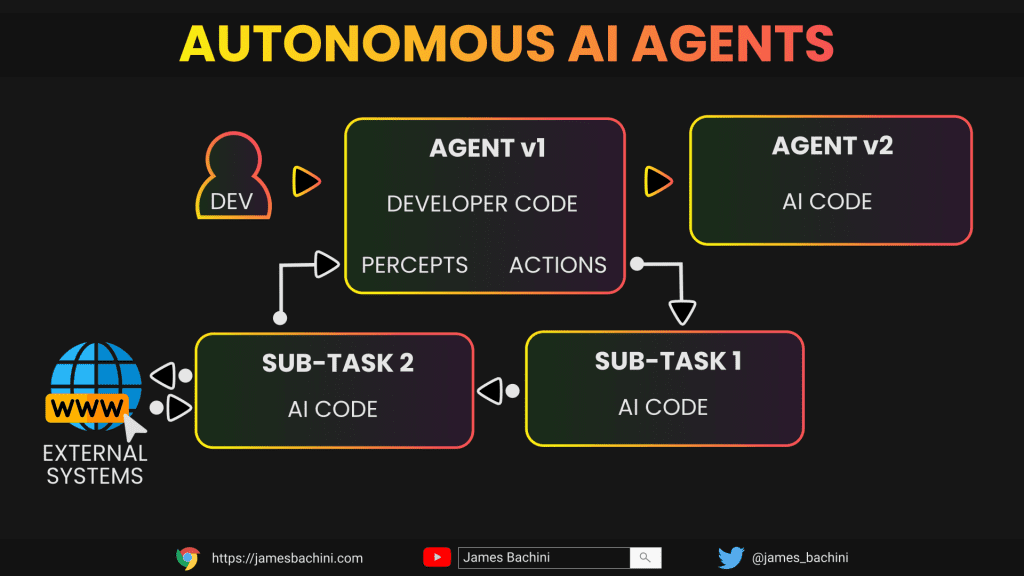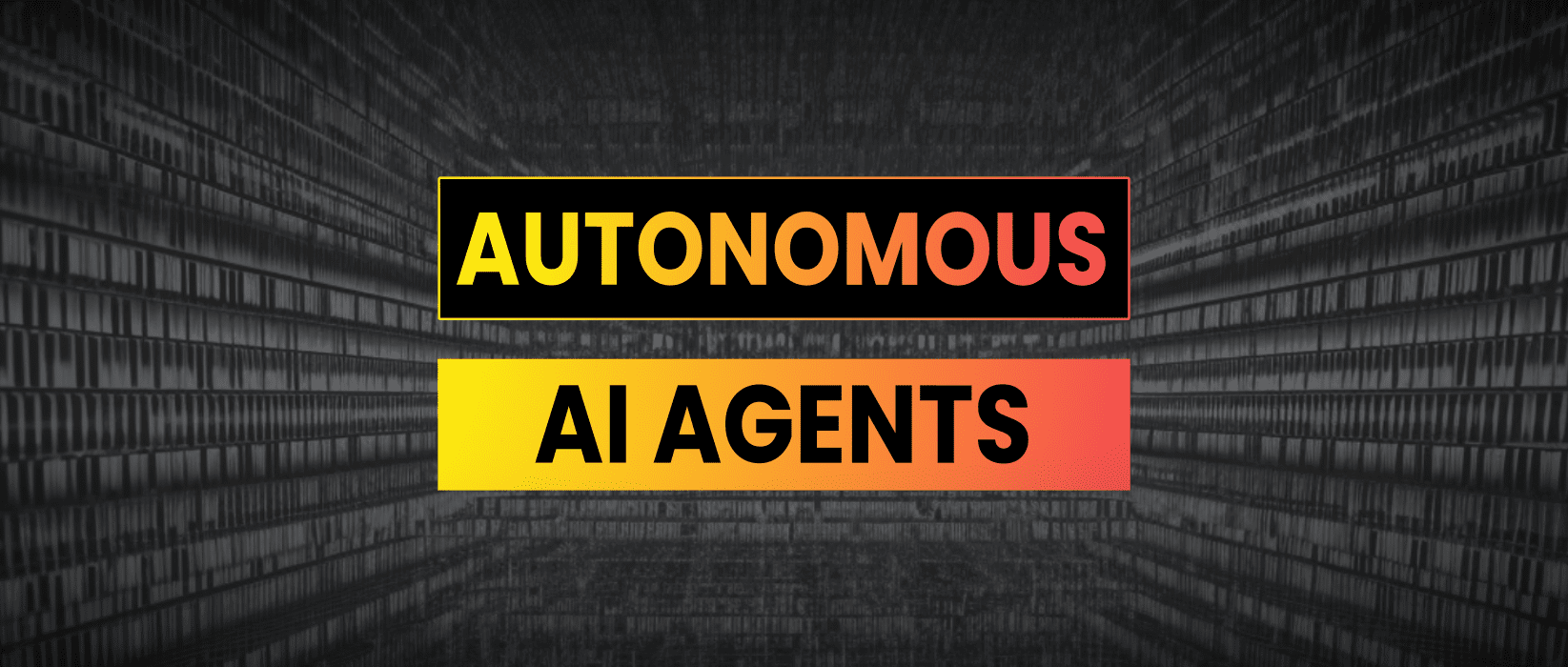Autonomous AI agents are often considered the most dangerous form of AI, as they have the capacity to evolve to meet their developers goals.
In this article we will explore how autonomous AI agents work, the potential for this technology and question some implications in it’s inevitable roll out.
How Autonomous AI Agents Work
Autonomous AI agents operate without direct human instruction. These agents can respond to states and events in their environment and work towards achieving specific goals. They can use reasoning to interact with a system and behave purposefully towards accomplishing their goals.

Autonomous AI agents use machine learning to improve their efficiency, learning from mistakes and constantly improving. As more data is collected from feedback systems it trains the models to make it more effective.
Autonomous agents can create sub-tasks such as:
- Search the internet for resources and information
- Write and modify it’s own code to iterate and self-improve
- Replicate and evolve to create multiple instances
- Create additional sub-tasks to meet their goals
- Execute external applications and interact with external systems
The potential is to have machine learning code that has a better understanding of how to meet it’s goals than it’s human developers do. It therefore creates it’s own models, sub-tasks and instances to move forwards towards it’s defined goals.
Autonomous AI Agents Use Cases
The development of autonomous AI agents has important applications in fields such as:
- Manufacturing Agents can help automate many aspects of the manufacturing process, from design to assembly line work and quality control. This will improve efficiency in the manufacturing process and potentially reduce the advantage of nations with cheap labour costs.
- Content Creation In the not so distant future automated content creation software will be used to create perfect content to match your interests. Much like TikTok iterates to show you ever more closely matched videos, autonomous AI agents will create scripts, design scenes, animate content, generate voice overs, music and sound effects to create that content without human interaction.
- Finance The dream for many quants is to give an application the task of making money and let it evolve towards that goal. In reality AI will be equally suitable with fraud detection, risk management and portfolio management.
- Defence In recent times we’ve seen the use of drones have a big impact in modern warfare. It’s not unprecedented that future systems could incorporate Autonomous AI agents to make their defence systems more capable.
There are examples of an AI agents you can use today, such as ChatGPT spin-offs which have the ability to use external search and APIs, write their own code and execute that code to create sub-tasks.
The most popular of these is AutoGPT which is a open-source Python script. There is a full AutoGPT tutorial here:
Risks & Implications
These autonomous AI agents are still in the early stages of development, and they are not going to create a skynet any time soon. AI agents can get stuck in task loops and have issues with processing of data from external systems, they need guardrails and training wheels to prevent them from making mistakes.
Despite these limitations, the progress being made in autonomous AI agents is happening in real-time, and it is accelerating at a rapid pace. It is only a matter of time before these agents become reliable and capable of performing many of the tasks which we currently do ourselves.
While I think Terminator like robots taking over the world is better left to science fiction there are some serious risks to consider. What if 2022 was the peak of human knowledge collated on the world wide web. Could increasing quantities of AI generated, regurgitated content, eventually deteriorate the information we have online. Today LLM’s are trained on the webs collection of human writing. Over the next decade that will no longer be possible as they will be trained on the webs collection of AI generated content.


